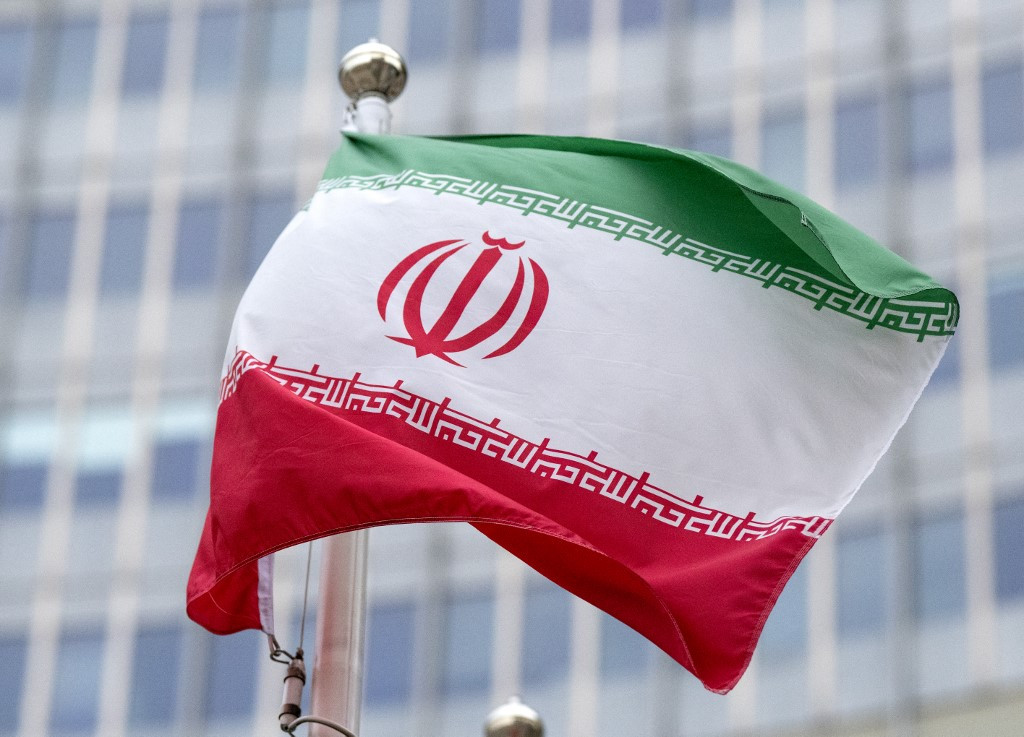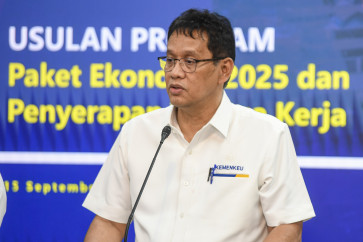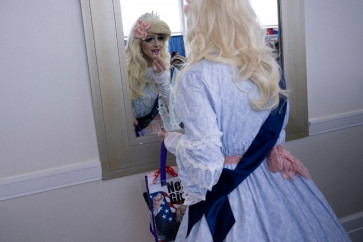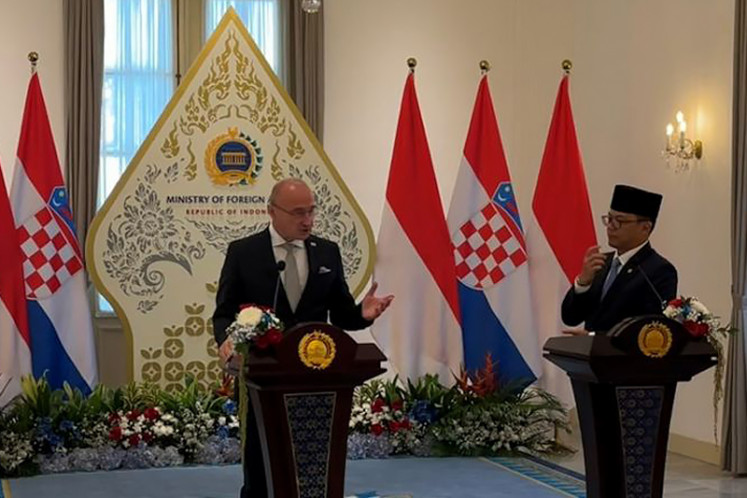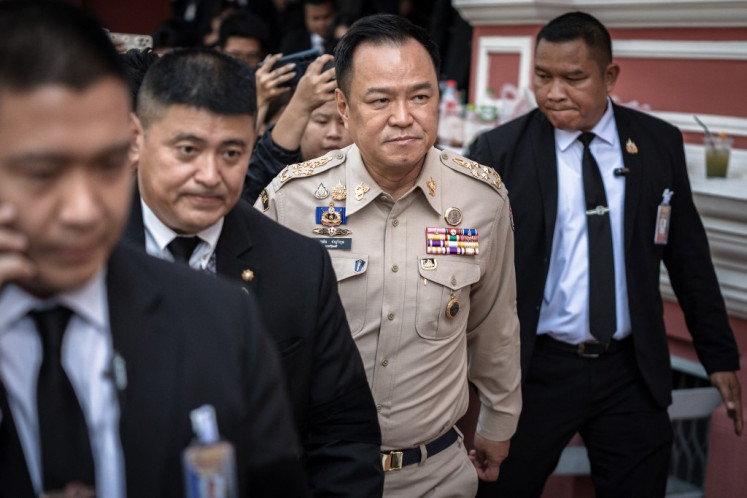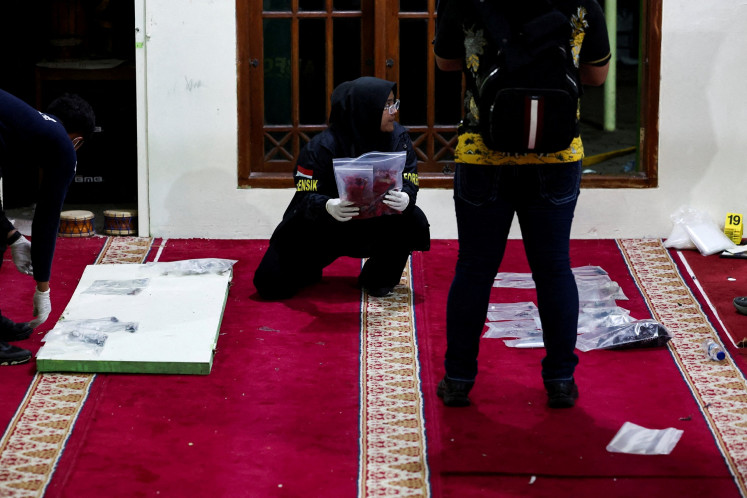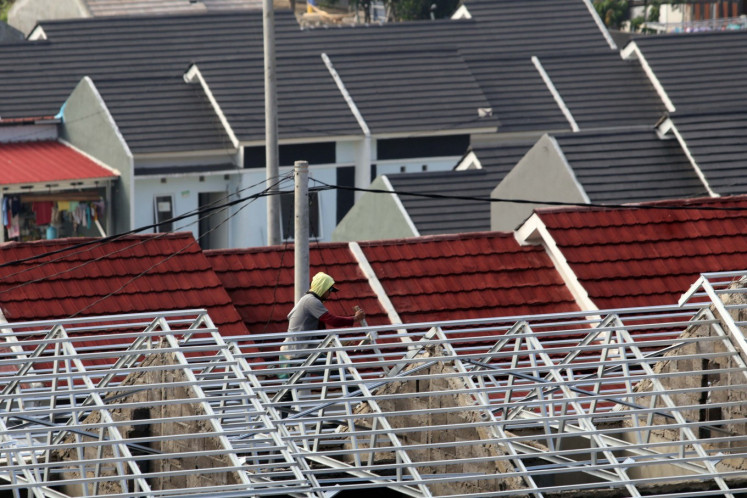Popular Reads
Top Results
Can't find what you're looking for?
View all search resultsPopular Reads
Top Results
Can't find what you're looking for?
View all search resultsIran holds nuclear talks with Europeans as tensions ratchet up
The stakes were laid bare in a warning from Britain's foreign intelligence chief that Iran's nuclear ambitions posed a major global security threat, despite its weakened position after setbacks dealt to allies Hamas and Hezbollah.
Change text size
Gift Premium Articles
to Anyone
I
ran, Britain, France and Germany were meeting in Geneva on Friday under a shroud of secrecy to discuss Tehran's nuclear program, amid surging tensions even before Donald Trump's return to the White House.
In a rare show of discretion, the countries foreign ministries were providing no details on the topics to be discussed, or even the specific time and venue for the talks or how long they were due to last.
The stakes were laid bare in a warning from Britain's foreign intelligence chief that Iran's nuclear ambitions posed a major global security threat, despite its weakened position after setbacks dealt to allies Hamas and Hezbollah.
"Iran's allied militias across the Middle East have suffered serious blows," Secret Intelligence Service chief Richard Moore said in a speech in Paris. "But the regime's nuclear ambitions continue to threaten all of us."
Social media exchanges following a meeting in Geneva on Thursday between Iranian and European Union diplomats meanwhile hinted at the atmosphere ahead of Friday's talks.
Enrique Mora, the EU's second highest-ranking diplomat, described on X a "frank exchange" with Majid Takht-Ravanchi and Kazem Gharibabadi, two deputies to Iranian Foreign Minister Abbas Araghchi.
He said the discussion had revolved around "Iran's military support to Russia that has to stop, the nuclear issue that needs a diplomatic solution, regional tensions [important to avoid further escalation from all sides] and human rights".
'Irresponsible'
Gharibabadi also described the encounter on X as "frank", decrying that "Europe has failed to be a serious player" on the nuclear issue, after the Washington in 2018 broke off an international agreement and unilaterally reimposed sanctions on Tehran.
Iran's deputy foreign minister for legal and international affairs also urged the EU to "abandon its self-centered and irresponsible behavior" on a range of issues including the wars in Ukraine and Gaza.
Friday's meeting takes place in the context of extreme tension in the Middle East between Israel and Iran and its allies.
This week a fragile ceasefire took effect in Lebanon after a year of conflict with Israel which has dealt a heavy blow to Iran-backed Hezbollah, while Hamas is reeling amid the war still raging in Gaza.
And on January 20, Trump, who pursued a policy of "maximum pressure" against Iran during his first term, returns to the White House.
Iran hopes to mend relations with Europe, while also maintaining a firm stance.
In an interview with The Guardian newspaper published Thursday, Araghchi warned that frustration in Tehran over unmet commitments, such as lifting sanctions, was fuelling debate over whether the country should alter its nuclear policy.
Friday's talks have been overshadowed by the European countries teaming up with the United States to have Iran censured by the UN atomic watchdog for its lack of cooperation on nuclear issues.
The IAEA chiding provoked a defiant response from Iran, which slammed the move as "politically motivated" and in response announced the launch of "new advanced centrifuges" designed to increase its stockpile of enriched uranium.
This "is clearly going in the wrong direction", a German foreign ministry spokesman told reporters Friday.
Iran insists on its right to nuclear energy for peaceful purposes, but according to the IAEA, it is the only non-nuclear-weapon state enriching uranium to 60 percent.
The IAEA said in a report that Iran planned to install 6,000 new centrifuges at its sites in Fordo and Natanz, aimed at up to five percent enrichment.
While far lower than the current levels it is enriching at, that is higher than the 3.67 percent limit Tehran had agreed to in the landmark 2015 nuclear deal.
That deal between Tehran and major powers aimed to give Iran relief from crippling Western sanctions in exchange for limiting its nuclear program to prevent it from developing a weapons capability.
Tehran adhered to the deal, but in 2018, during Trump's first presidency, Washington unilaterally pulled out of that agreement and slapped heavy sanctions back on Iran.
For Tehran, the goal of Friday's talks is to avoid a "double disaster" scenario of renewed pressures from both Trump and European governments, according to political analyst Mostafa Shirmohammadi.

